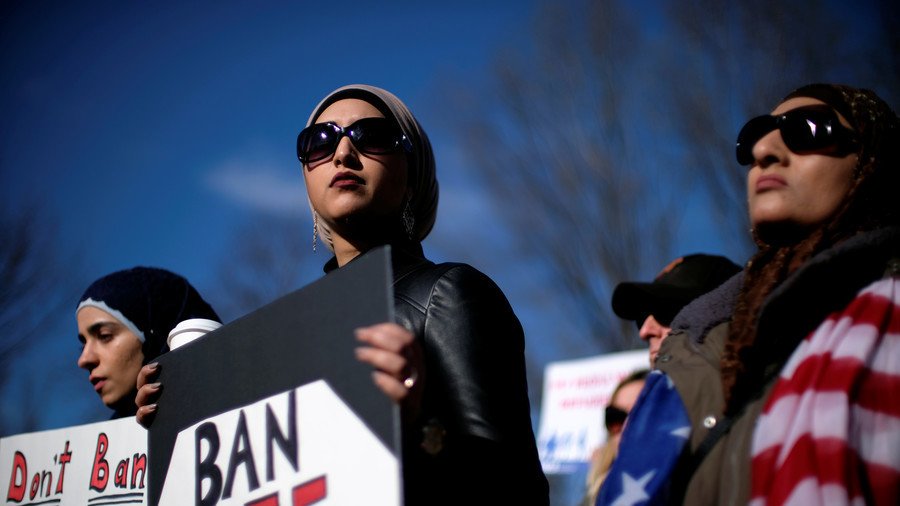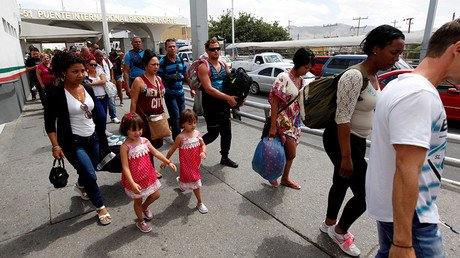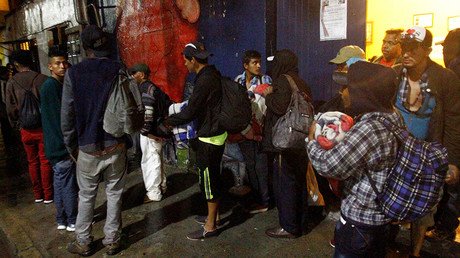Refugees from 11 ‘high-risk’ countries to face tougher US anti-terrorist screening

Washington announced it will limit entry of asylum seekers from 11 countries, reported to be Muslim-majority nations, in a bid to prevent “terrorists, criminals and fraudsters” from sneaking in disguised as refugees.
Announcing the measure on Monday, Homeland Security Secretary Kirstjen Nielsen said the newly-unveiled restrictions “have nothing to do with race or religion.”
“These additional security measures will make it harder for bad actors to exploit our refugee program, and they will ensure we take a more risk-based approach to protecting the homeland,” Nielsen said, noting that it’s “critically important to know” who is allowed to resettle in the US.
Although, it has not been revealed which countries are on the list, they are rumored to be predominantly Muslim-majority countries placed under review in October, plus North Korea.
In October, the US administration launched a 90-day review of 11 “higher-risk countries” which should have been carried out on a case-by-case basis. At the time it declined to disclose the names of the countries, however, according to media reports citing sources within the administration and refugee advocacy groups, Egypt, Iran, Iraq, Libya, Mali, Somalia, South Sudan, Sudan, Syria, Yemen as well as North Korea were on the list.
The designated review period expired last week.
Justifying the restrictions, Nielsen said they are aimed not only at enhancing US security, but also at helping “legitimate refugees fleeing persecution.”
While the review period did not amount to a ban on refugee admissions, State Department data, cited by Reuters, indicates the program was effectively put on hold, as the number of asylum seekers from the 11 countries dropped dramatically with the measure taking effect.
In late December, a US District Judge in Seattle ruled that while the government could go ahead with the security review it lacks legal grounds to halt processing applications filed by refugees who have a “bona fide relationship” with the US.
The review was ordered after a 120-day pause on refugee admissions, part of the Trump administration’s controversial “travel ban,” expired late October.















